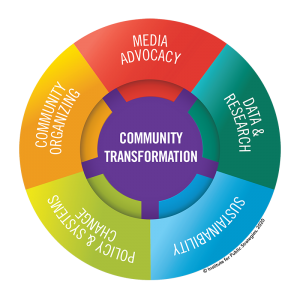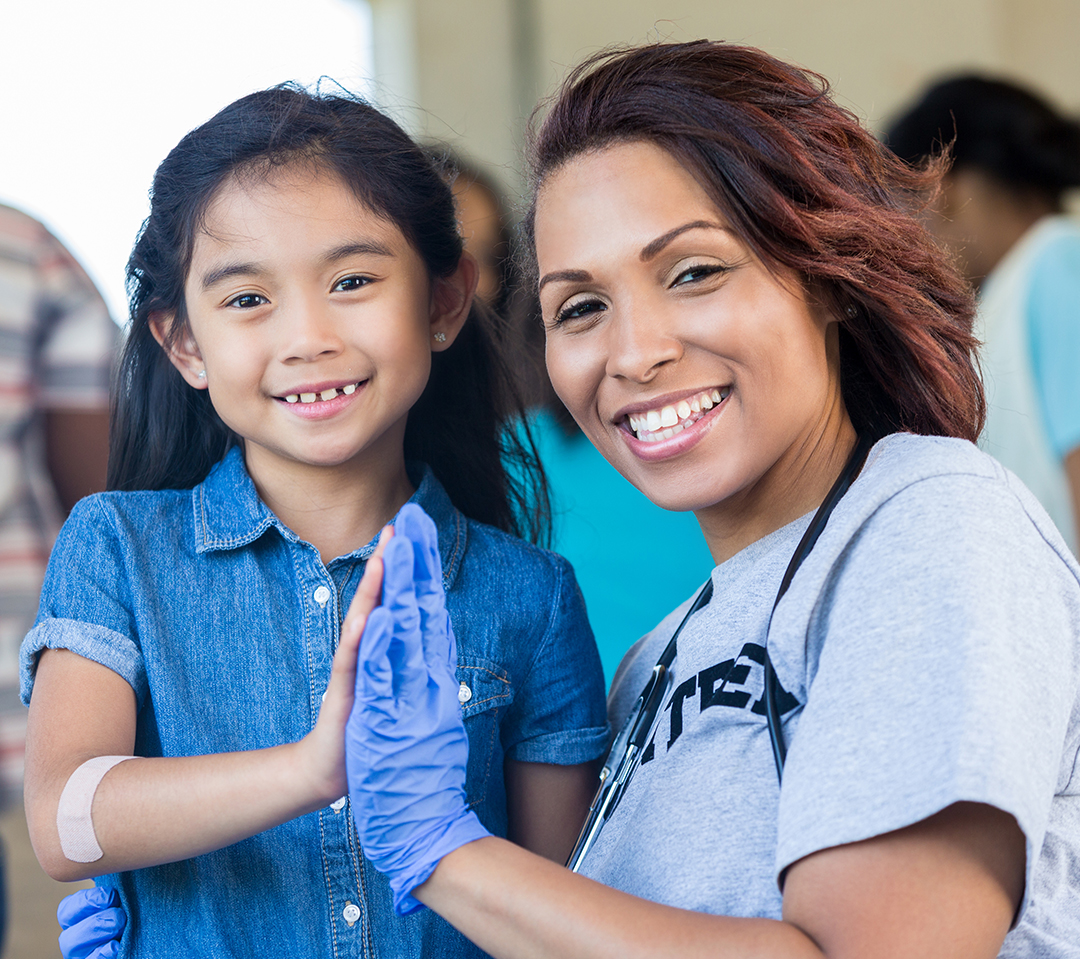ACT for Equity
Equity is achieved when everyone has the opportunity to live to his or her full potential.
IPS’s ACT Model provides a framework for transforming communities by advancing equity. It is a dynamic, integrated, non-linear approach that is customizable to meet the unique needs of each community.
It is designed to achieve safe, secure, vibrant and healthy communities where everyone can thrive.
 We develop a vision for change. (Community Transformation)
We develop a vision for change. (Community Transformation)
We use earned media, social media and other forms of communication technologies to amplify voices, elevate issues on the public agenda, promote collective responsibility, and prompt change. (Media Advocacy)
We assess inequities, their root causes, and their linkage to health disparities; we use these to identify innovative solutions informed by evidence. (Research & Data)
We cultivate a sense of community cohesion, build capacity, and foster collective efficacy among our partners. (Sustainability)
We develop and advocate for policy and systems change that breaks down structural barriers to equity. (Policy & Systems Change)
We engage the grassroots populations most affected by inequities. (Community Organizing)


